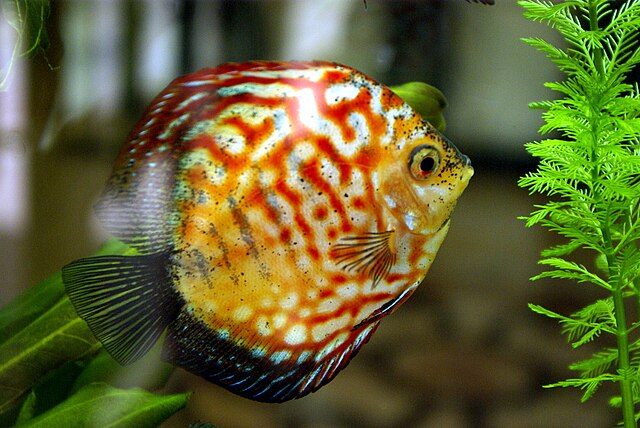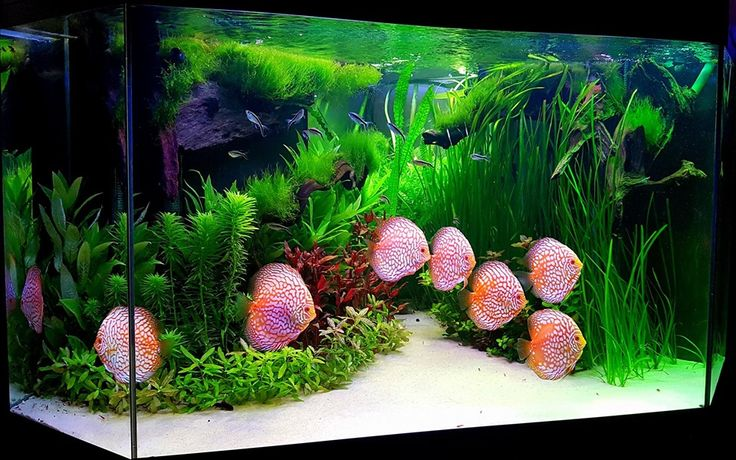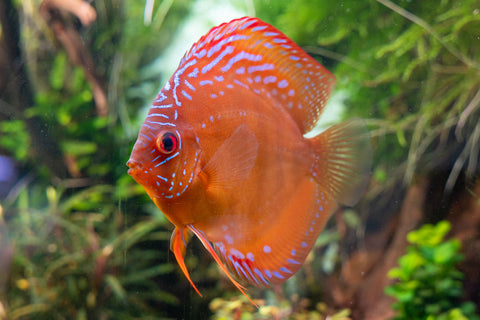Discus fish, known for their vibrant colors and elegant appearance, have become quite popular in the aquarium hobby. Many aquarists are drawn to their unique beauty and strive to keep these fascinating creatures in their tanks. However, there is a common question that arises in the minds of those considering discus fish as pets: Are discus fish hard to keep?

Understanding Discus Fish
Discus fish, scientifically known as Symphysodon, are native to the Amazon basin and have captivated fish enthusiasts for decades. These fish are known for their round and laterally compressed bodies, as well as their mesmerizing patterns and colors. From bright reds and blues to intricate patterns, discus fish are true works of art.
In their natural habitat, discus fish inhabit warm, soft, and acidic waters. Understanding their natural habitat is crucial in replicating their ideal conditions in a home aquarium.
Factors to Consider Before Getting Discus Fish
Before bringing discus fish into your home aquarium, there are several important factors to consider. One of the primary considerations is the tank size and setup requirements.
Discus fish require spacious tanks with enough room to swim freely. A minimum tank size of 30 gallons is recommended for a small group of discus fish.
Water quality and temperature are also critical factors in discus fish care. These fish prefer warmer temperatures, typically around 28°C (82°F).
Additionally, they require clean and well-filtered water. It’s important to monitor water parameters regularly and ensure the pH and hardness levels are suitable for discus fish.
Another aspect to consider is the compatibility of discus fish with other species. Due to their specific care requirements, it is best to keep discus fish in a dedicated tank without aggressive or fin-nipping tankmates.
Choosing compatible tankmates, such as peaceful tetras or dwarf cichlids, will help create a harmonious environment for the discus fish.
Feeding discus fish a balanced and varied diet is crucial to their overall health. These omnivorous fish require a mix of high-quality flakes, pellets, and frozen foods. Including live or frozen foods, such as bloodworms or brine shrimp, is essential to provide the necessary nutrients and promote optimal growth.

Understanding the Challenges of Discus Care
- Wild discus vs. captive-bred: Wild discus demand pristine water parameters and meticulous care, making them more challenging than captive-bred varieties. Captive-bred discus tend to be more adaptable.
- Adult discus vs. juveniles: Juvenile fish require more frequent feedings and water changes to support their rapid growth. Adult discus has slightly less intensive care needs.
- Water Quality: The importance of excellent water quality for discus fish cannot be overstated. These aquarium fish are sensitive to fluctuations in pH, temperature, ammonia, nitrite, and nitrate levels.
- Feeding: Discus require a specialized diet rich in protein. Explore different high-quality food options to promote healthy growth and vibrant coloration.

Creating the Ideal Discus Tank Environment
- Planted tank vs. bare bottom tank: While planted tanks offer a more natural aesthetic, a bare bottom tank is crucial for maintaining the pristine water quality discus fish require. Uneaten food can easily hide in planted setups, leading to water quality issues.
- Substrate considerations: If you choose a planted tank, a thin sand substrate layer can work for discus. However, it requires careful maintenance to avoid trapped food and waste.
- Compatible discus tank mates: Peaceful, community tank species are essential when choosing tank mates for your discus. Consider cardinal tetras or certain types of docile catfish that thrive in similar water conditions.
- Tap water: Tap water treatment is crucial for discus. Most municipal water supplies have unsuitable pH and hardness levels, requiring adjustments for optimal discus health.

The Difficulty of Keeping Discus Fish
Now, let’s address the main question at hand: Are discus fish hard to keep? While they can be challenging to care for compared to some other fish species, with the right knowledge and commitment, discus fish can thrive in a home aquarium.
One common misconception is that discus fish are fragile and prone to diseases. While they do require specific water parameters and high water quality to thrive, with proper maintenance, their susceptibility to diseases can be minimized.
Additionally, discus fish require more time and effort compared to some other fish species. Regular water changes, monitoring water parameters, and maintaining a clean and well-balanced diet are vital for their well-being.
However, for aquarists who are passionate about discus fish, the rewards of successfully keeping and breeding these captivating creatures can be incredibly fulfilling.

Tips for Successful Discus Fish Care
To ensure the successful care of discus fish, here are some valuable tips:
- Create the right environment by providing suitable tank size and décor that mimic their natural habitat.
- Feed them a varied diet consisting of high-quality flakes, pellets, and live or frozen foods.
- Perform regular water changes and maintain proper filtration to keep water quality optimal.
- Monitor their behavior and appearance closely to identify any health issues and take prompt action.
Building Your Discus Fish Community
- Discus keepers as a resource: Join online forums and communities to connect with experienced discus keepers. Their knowledge and advice are invaluable, especially for beginners.
- Community tank vs. Species-only tank: A dedicated discus tank offers optimal control over water conditions, but a community tank with carefully chosen tank mates can be successful. Research compatible species thoroughly.
- Potential tank mates: Good tank mates for discus include species like rummy nose tetras, German blue rams, or certain bottom-dwellers like corydoras catfish. Ensure any potential tank mates share the same water parameter preferences as your discus.

Conclusion
While discus fish may require more attention and care compared to some other fish species, they are not impossible to keep. With the right knowledge, preparation, and dedication, aquarists can create a thriving environment for these stunning fish.
By understanding their specific care requirements and providing optimal conditions, discus fish can bring joy and beauty to any aquarium.


